-
Seedshop
-
Feminized
Cannabis seeds -
Autoflowering
Cannabis Seeds -
Regular
Cannabis Seeds -
F1 Hybrid
Cannabis Seeds -
CBD
Cannabis Seeds -
Zamnesia
Cannabis Seeds
-
Top 10’s
- Top 10 Feminized Seeds
- Top 10 Autoflowering Seeds
- Top 10 Regular Seeds
- Top 10 USA Cannabis Strains
-
Favourites
- Beginner Strains
- Below 1% THC
- Classic Cannabis Strains
- Cup Winners
- F1 Hybrids
- Fast Flowering Seeds
- High CBD Strains
- High THC Strains
- Mix Packs
- Zamnesia Exclusive Collabs
-
-
Headshop
-
Vaporshop
- Spare Parts & Accessories
- AirVape XS GO (2021)
- Arizer Air MAX
- Arizer Extreme Q
- Arizer Solo 2
- Arizer V-Tower
- Arizer XQ2
- Boundless CFC 2.0 Vaporizer
- Boundless CFX
- Boundless TERA (V3)
- CRAFTY+
- DaVinci IQC
- Dr. Dabber Boost EVO
- DynaVap VapCap "M" PLUS 2023
- DynaVap VonG (i) Titanium
- Flowermate Aura
- Flowermate Cap Pro
- Flowermate Slick
- Flowermate V5.0S Pro
-
Healthshop
-
Smartshop
-
Shroomshop
-
Growshop
-
Seedshop
All CategoriesSeedshop
- Autoflower Seeds
- Feminized Cannabis Seeds
- Zamnesia Seeds
- Zamnesia's Top 10
- CBD Seeds
- F1 Hybrids
- Seed Banks
- Mix Packs
-
Popular Strain Types
- Zamnesia Exclusive Collabs
- Classic Cannabis Strains
- Amnesia Seeds
- Haze Seeds
- Skunk Seeds
- Kush Seeds
- Purple Seeds
- Blueberry Seeds
- Cheese Seeds
- Diesel Seeds
- White Widow Seeds
- Gorilla Seeds
- Northern Lights Seeds
- Granddaddy Purple Seeds
- OG Kush Seeds
- Blue Dream Seeds
- Lemon Haze Seeds
- Bruce Banner Seeds
- Gelato Seeds
- Sour Diesel Seeds
- Jack Herer Seeds
- Girl Scout Cookies Seeds (GSC)
- Wedding Cake Seeds
- Zkittlez Seeds
- Pineapple Express Seeds
- Chemdawg Seeds
- Hindu Kush Seeds
- Mimosa Seeds
- F1 Hybrids
- Mix Packs
- Cup Winners
- Beginner Strains
- High THC Strains
- Fast Flowering Seeds
- Regular Cannabis Seeds
- USA Cannabis Strains
- Cup Winners
- Seedfinder
-
Vaporshop
All CategoriesVaporshop
- Top 10 Vaporizers
- Spare Parts & Accessories
- AirVape XS GO (2021)
- Arizer Air MAX
- Arizer Extreme Q
- Arizer Solo 2
- Arizer V-Tower
- Arizer XQ2
- Boundless CFC 2.0 Vaporizer
- Boundless CFX
- Boundless TERA (V3)
- CRAFTY+
- DaVinci IQC
- Dr. Dabber Boost EVO
- DynaVap VapCap "M" PLUS 2023
- DynaVap VonG (i) Titanium
- Flowermate Aura
- Flowermate Cap Pro
- Flowermate Slick
- Flowermate V5.0S Pro
- G Pen Elite II
- G Pen Micro+
- G Pen Roam
- Hyer Big-E Rig
- MIGHTY+
- PAX Mini
- PAX Plus
- PLENTY
- Puffco Peak Smart Rig
- Puffco Plus
- Storm Vaporizer
- The Proxy (Puffco)
- VOLCANO CLASSIC
- VOLCANO HYBRID
- Vapman 2.0
- Vapman Click
-
Smartshop
All CategoriesSmartshop
- Top 10 Smartshop
- Zamnesia Gift Cards
- After Party
- Aphrodisiacs
- Aromatherapy
- Blue Lotus
- CBD Vape Juice
- Capsule Machines
- Crystals, Gemstones & Minerals
- Dream Herbs
- Drug Tests
- Extracts
- Happy Caps
- Herbal Tea
- Herbs & Seeds
- Incense
- Kanna
- Kratom
- LSA Seeds
- Mescaline Cacti
- Microdosing
- Nootropics
- Relaxing
- Salvia divinorum
- Smart Seeds
- Stimulants
- Supplements
- Tinctures
- Vape Herbs
-
TRIBE
All CategoriesTRIBE
- My Membership
- Spend Gift Points
- TRIBE Sale
- Exclusive products
- Earn Extra Gift Points
-
TRIBE
- Early Access
- Refer a Friend
- Information
-
TRIBE
-
Language
 United States
United States
Wednesday, 04 February and Tuesday, 10 February 2026*
Getting The Most Out Of Ginkgo Biloba

As a type of tree dating back many millions of years, Ginkgo biloba has long been utilised for holistic purposes. From promoting sleep readiness to potentially improving mood, there is plenty to discover with ginkgo. With that in mind, we delve into the history behind the tree, and show you how to experience it yourself.
With documented use dating back hundreds of years, Ginkgo biloba still has many applications in contemporary life. Often found as an active ingredient in vitamins and supplements, the leaves and extracts from this tree are said to have rich antioxidant properties as well as an array of potential benefits. But what exactly is Ginkgo biloba?
Below, we delve deep into the amazing history behind this plant, why it's still highly revered in modern times, and how you can go about using it yourself.
Ginkgo biloba: An ancient Eastern fix
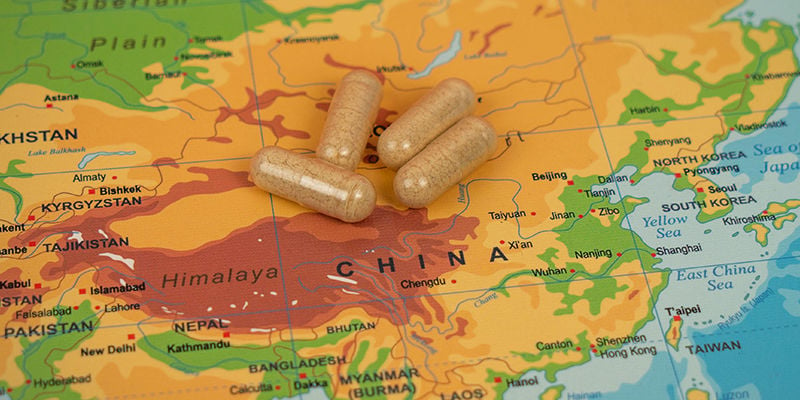
Otherwise known as the maidenhair tree, Japanese nut tree, or simply ginkgo, Ginkgo biloba is the only living species of the Ginkgoales order, and is native to China. The word “ginkgo” comes from a misspelling of “gin-kyo”, a Japanese term for “silver apricot”. This alternative spelling has led to ginkgo being the most commonly used term for this type of tree.
Combined with the word “biloba”, meaning “having two lobes”, you've got the perfect description for the leaves of this tree. And it is the leaves, and their extracts, that are believed to provide some potential benefits to the human body.
Where does Ginkgo biloba come from?
The Ginkgo genus can be traced back 170 million years, with the Ginkgoales order spanning back 290 million years. However, it was rediscovered and recorded in 1691 by Europeans. Since that point, Ginkgo biloba has been cultivated in a wide range of countries and climates. While still mainly associated with China and Chinese culture, ginkgo has also achieved prominence in Japan and other Asian countries. It is a hearty and robust tree that can be grown in a wide variety of environments. That being said, Ginkgo biloba is now considered an endangered species.
Why Ginkgo biloba is called a “living fossil”

Something that makes the ginkgo tree truly special is that it's essentially a living fossil. As mentioned, preserved specimens in the same order have been discovered to date back around 290 million years, with very little difference to modern samples. To say that Ginkgo biloba is resilient would be a massive understatement. The tree even survived the atomic explosion of Hiroshima in 1945, and was one of the only living things remaining in the city after the blast.
Besides surviving nuclear blasts, ginkgo is also highly resilient to insects and pests as it secretes an unappealing chemical, ensuring it is left alone in the wild. This chemical also deters any mould, fungi, or bacteria attempting to grow; there's little wonder as to why this tree has stood the test of time.
Looking further into the science behind Ginkgo biloba, a study carried out by the Chinese National Institute of Geology and Palaeontology shows that ginkgo's genes have not changed for the past 51 million years, and still retains the same DNA as the fossils studied.
Ginkgo biloba vs ginseng
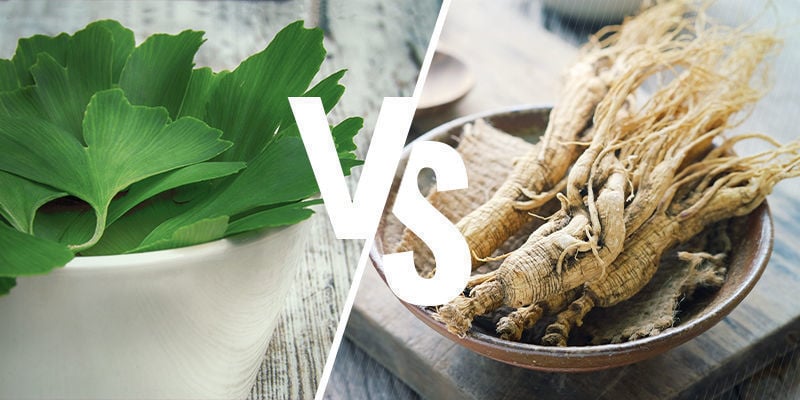
Both harnessed in traditional Chinese medicine for their possible benefits, ginseng is often said in the same breath as Ginkgo biloba—but are they really the same thing? Simply put, no. While they share a few similarities, Ginkgo biloba's power comes from the leaves and subsequent extracts, while ginseng's comes from the roots.
Whether fresh, dried, or in the form of a powdered extract, ginseng is rich in antioxidant properties. This is where ginkgo and ginseng do share some things in common. Both are heavily featured in wellness supplements, and may even work in tandem to offer a wealth of benefits to users.
What is Ginkgo biloba used for?

Since its rediscovery, Ginkgo biloba seeds and leaves have been used for all kinds of holistic purposes. Seen as an all-natural dietary supplement, ginkgo is still highly sought after to this very day. Although its use dates back many years, formal research regarding Ginkgo biloba is still very much in its infancy. With that in mind, below are some examples of ginkgo's potential benefits to health and wellness.
✅Blood circulation
Traditional Chinese practices used ginkgo as a means to potentially increase blood flow to organs such as the liver, brain, and kidneys. In the modern era, a study (Wu et al., 2008) administered ginkgo extract to coronary artery disease patients in hopes of increasing blood flow to different areas of the body. The results showed increased blood flow in some of the patients. However, more concrete evidence is needed to make any conclusions.
✅Tension
Ginkgo biloba is often cited as a harbinger of tension relief. One particular trial (Woelk et al., 2007) gave 107 participants a ginkgo dose of 240mg, 480mg, or a placebo. Those administered the highest dose reported the most significant changes in terms of tension relief, although the lower dose was also seemingly more effective than the placebo. The research concluded that the high levels of antioxidants in ginkgo are potentially responsible for these results.
✅Inflammation
Rich in antioxidants and other compounds, Ginkgo biloba has long been used in an attempt to assist in the body's natural response to inflammation. A 2013 study (Chen et al.) showed the impact of administering ginkgo extract on inflammation. Although the trial was carried out on animals as opposed to human participants, the results show a notable impact on inflammation, sparking the desire for more widespread research into the impact in humans.
✅Memory, focus, and attention span
Preliminary research has been undertaken regarding ginkgo's effectiveness in improving memory and focus. Small, isolated trials (Mix & Crews, 2002) have seen some improvement in cognitive performance as well as memory and overall well-being. However, few high-quality studies point to this being the case. As such, more research is needed to support or deny these claims.
✅Mood
While there have been no human studies into the effects of ginkgo on mood, research carried out on mice shows promise. A study (Montes et al., 2015) administered mice with ginkgo for up to 82 consecutive days, subjecting them to a stressful situation at day 28 and day 70. In both instances, compared to the control group, the mice given ginkgo showed less tension when forced to take part in a maze test.
However, as mood and mental health is obviously a complex and tricky subject, comprehensive research is required to support these findings.
✅Sex life
With promising research on ginkgo's influence on blood circulation, there have also been studies into its impact on a person's sex life. Sometimes utilised by those with sexual dysfunction or low libido, this is a topic that has undergone predominantly anecdotal scrutiny, and has seen very little in the way of formal studies. Moreover, as with many supplements, the effectiveness of ginkgo can vary from one person to the next.
Is Ginkgo biloba safe to use?
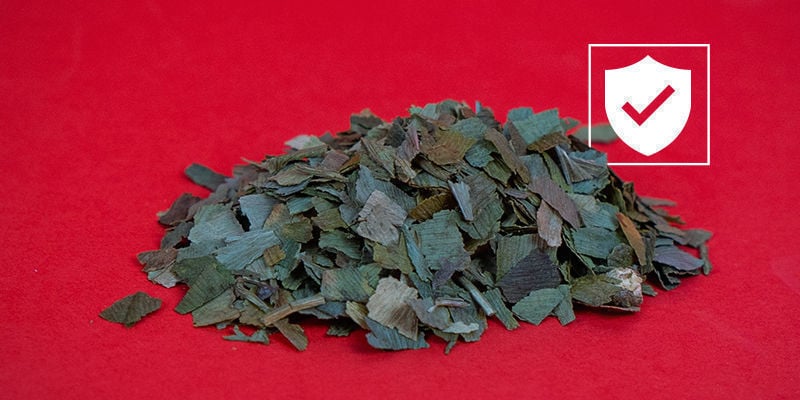
Overall, Ginkgo biloba supplements are considered safe to use in moderate, regular dosages. However, pregnant or breastfeeding women, young children, or those taking blood thinning medications should seek the advice of a medical professional before deciding to use any ginkgo-related product, as it may not be suitable.
What are the side effects of Ginkgo biloba?
Although rare, there are some side effects associated with taking Ginkgo biloba—specifically very high doses. So, much like introducing any new vitamin or supplement into your diet or daily routine, it is always worth consulting a doctor before taking ginkgo supplements.
Some side effects of note include:
- Dizziness
- Diarrhoea
- Headaches
- Stomach cramping/pain
- Nausea/vomiting
- Rashes
Ways you can try Ginkgo biloba for yourself
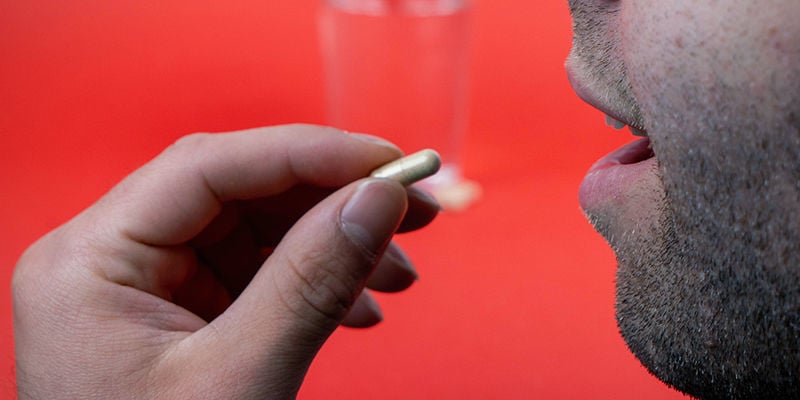
Available in numerous forms, such as dried leaves, powdered extracts, and convenient capsules, there are many ways to add a little ginkgo into your daily life. While there is no uniform way to administer it, below we've listed a few ways you can do so, and the associated benefits.
Dried leaf (tea or vaping)
One of the easiest methods is to utilise the dried leaves; they are essentially ready to go as soon as you receive them.
Brewing ginkgo tea is a truly effortless task. Simply bring water to a boil and add your chosen amount of leaves. Allow the water to take on all of the nutrients and flavour for around 10–15 minutes. Then, strain the concoction and serve. This is a delicious way to experience the taste and potential benefits of ginkgo leaves.
Another method is to vape the leaves. Using any dry-herb vaporizer, this is easy to achieve. Take a pinch of the leaves and pack the chamber. Once in place, heat the device to a low temperature setting to allow the flavours and aromas to really shine through. A few pulls is all it takes to get the best out of your Ginkgo biloba leaves.
Those looking for great-tasting and potent leaves will want to check out Zamnesia's stock of Ginkgo biloba. Available in a pack of 50g, you can make plenty of tea and enjoy numerous vape sessions before needing to restock.
Liquid leaf extracts
Not just available in dried leaf form, there are plenty of liquid ginkgo extracts on offer. From tinctures to sprays, it's very easy to take a daily dose at your convenience. Tinctures allow you to administer a drop or two directly under your tongue so it can be absorbed rapidly into the bloodstream. This method is known as sublingual administration, which is an easy and fast-acting way to take ginkgo. However, being a tincture, you can also apply a few droplets into your morning coffee, smoothie, or water as well.
Similarly, ginkgo mouth sprays are available, which are similar to tinctures, except these allow you to dose into your mouth or atop food via a fine mist.
Capsules or tablets (oral intake)
As arguably the easiest, most discreet, and convenient way to take ginkgo, capsules and tablets allow users to dose at any time of day they see fit. In fact, Zamnesia has even created its own Ginkgo biloba extract supplement that provides an even 240mg dose per serving. With no aroma, those conscious of taking supplements in public needn't worry. Produced using high-quality ginkgo extract, it's never been easier to introduce this prized herb into your daily life. The capsules are small in size and can easily be taken at home, on the move, or at work. Convenience is key with Zamnesia's supplements.
When to take Ginkgo biloba

Typically, Ginkgo biloba is taken 1–2 times per day. But when should you opt to administer it? This really comes down to personal preference and what you're trying to achieve. Thankfully, no matter the method of consumption, it's easy to fit it into your schedule. That being said, let's look at the benefits of taking ginkgo in the morning versus the evening.
Morning
As with most daily vitamins and supplements, ginkgo is often taken with a meal in the morning. Those looking to relieve tension or soothe nerves during the day may find morning administration to be the most beneficial. This is also true for those looking to experience benefits to attention and focus, especially in the workplace. Introducing ginkgo into your morning routine is easy and often favoured by those with a busy lifestyle.
Evening
Ginkgo biloba also holds some possible benefits as a nighttime supplement. With the potential to ease nerves and boost the mood, there's little wonder as to why ginkgo is so popular amongst those looking to achieve a healthy night's sleep. There have even been studies (Hemmeter et al., 2001) into the effectiveness of Ginkgo biloba as a sleeping aid.
Ginkgo Biloba: This ancient herb is ready and available now

Regardless of how or when you consume ginkgo, there's no denying it has a promising future and a storied past as a daily supplement. With research continually being carried out, we will learn more about this herb as it unfolds. And as a tree that's over 290 million years old, there are still many surprises to discover.
In the meantime, if you're looking to try ginkgo extract, head over to the Zamnesia store and experience the benefits for yourself.

- Chen, Y. J., Tsai, K. S., Chiu, C. Y., Yang, T. H., Lin, T. H., Fu, W. M., Chen, C. F., Yang, R. S., & Liu, S. H. (2013). EGb761 inhibits inflammatory responses in human chondrocytes and shows chondroprotection in osteoarthritic rat knee. Journal of Orthopaedic Research, 31(7), 1032–1038. - https://onlinelibrary.wiley.com
- Hemmeter, U., Annen, B., Bischof, R., Brüderlin, U., Hatzinger, M., Rose, U., & Holsboer-Trachsler, E. (2001, March). Polysomnographic Effects of Adjuvant Ginkgo Biloba Therapy in Patients with Major Depression Medicated with Trimipramine1. Pharmacopsychiatry, 34(2), 50–59. - https://www.thieme-connect.de
- Mix, J. A., & Crews, W. D. (2002). A double-blind, placebo-controlled, randomized trial of Ginkgo biloba extract EGb 761 in a sample of cognitively intact older adults: neuropsychological findings. Human Psychopharmacology, 17(6), 267–277. - https://onlinelibrary.wiley.com
- Montes, P., Ruiz-Sanchez, E., Rojas, C., & Rojas, P. (2015). Ginkgo biloba Extract 761: A Review of Basic Studies and Potential Clinical Use in Psychiatric Disorders. CNS & Neurological Disorders - Drug Targets, 14(1), 132–149. - http://www.eurekaselect.com
- Woelk, H., Arnoldt, K. H., Kieser, M., & Hoerr, R. (2007/09/01). Ginkgo biloba special extract EGb 761® in generalized anxiety disorder and adjustment disorder with anxious mood: A randomized, double-blind, placebo-controlled trial. Journal of Psychiatric Research, 41(6), 472–480. - https://www.sciencedirect.com
- Wu, Y.-Z., Li, S.-Q., Zu, X.-G., Du, J., & Wang, F.-F. (2008). Ginkgo biloba extract improves coronary artery circulation in patients with coronary artery disease: contribution of plasma nitric oxide and endothelin-1. Phytotherapy Research: PTR, 22(6), 734–739. - https://onlinelibrary.wiley.com
- France
- Germany
- International
- Italy
- Netherlands
- Polska
- Portugal
- Spain
- United Kingdom
- United States
You might also like
-

 5 min
30 April 2020
10 Best Herbs To Brew A Tea With
At least since the ancient Egyptians, herbs have been brewed into tea. Teas can be used as stimulants and sedatives or even as aphrodisiacs. Use vaping herbs to make teas that can be beneficial in sev ...
5 min
30 April 2020
10 Best Herbs To Brew A Tea With
At least since the ancient Egyptians, herbs have been brewed into tea. Teas can be used as stimulants and sedatives or even as aphrodisiacs. Use vaping herbs to make teas that can be beneficial in sev ...
-
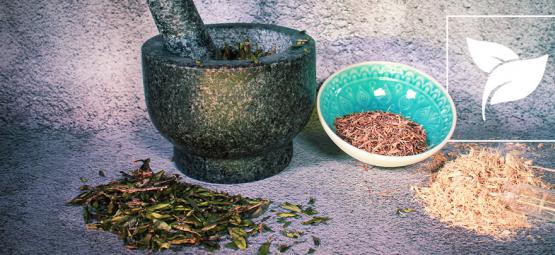
 2 min
4 January 2020
6 Exotic Herbs You’ve Never Heard Of (But Should Still Try)
Nature’s vast bounty of life forms provides a herb for every occasion. Are you looking add some spice to your sex life? Maybe you want to boost cognition before a bout of studying? Check out the six ...
2 min
4 January 2020
6 Exotic Herbs You’ve Never Heard Of (But Should Still Try)
Nature’s vast bounty of life forms provides a herb for every occasion. Are you looking add some spice to your sex life? Maybe you want to boost cognition before a bout of studying? Check out the six ...
-

 4 min
10 December 2019
The Right Herbal Extract For Every Occasion
Desire better sleep? Need to get high without using cannabis? Want to perform better in the bedroom with your partner? There's an herb for that! ...
4 min
10 December 2019
The Right Herbal Extract For Every Occasion
Desire better sleep? Need to get high without using cannabis? Want to perform better in the bedroom with your partner? There's an herb for that! ...
-
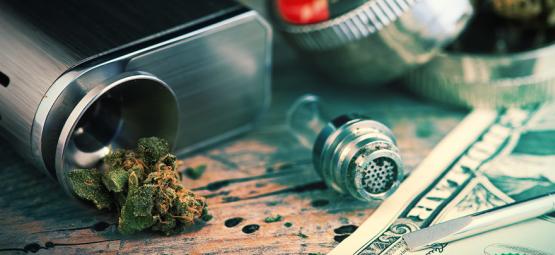
 5 min
6 August 2017
The Best Vaporizers For Smoking Dry Herbs
Looking to vape dry herbs? Check out this list for an in-depth look at our best dry herb vaporizers. They will put a smile on any vaper's face. ...
5 min
6 August 2017
The Best Vaporizers For Smoking Dry Herbs
Looking to vape dry herbs? Check out this list for an in-depth look at our best dry herb vaporizers. They will put a smile on any vaper's face. ...
Categories
-
Seedshop
- Feminized Cannabis Seeds
- Autoflower Seeds
- Regular Cannabis Seeds
- F1 Hybrids
- CBD Seeds
- Zamnesia Seeds
- Top 10 Autoflowering Seeds
- Top 10 Regular Seeds
- Top 10 USA Cannabis Strains
- Top 10 Feminized Seeds
- Beginner Strains
- Below 1% THC
- Classic Cannabis Strains
- Cup Winners
- F1 Hybrids
- Fast Flowering Seeds
- High CBD Strains
- High THC Strains
- Mix Packs
- Zamnesia Exclusive Collabs
- Amnesia Seeds
- Blueberry Seeds
- Cheese Seeds
- Diesel Seeds
- Gorilla Seeds
- Haze Seeds
- Kush Seeds
- Purple Seeds
- Skunk Seeds
- White Widow Seeds
- Northern Lights Seeds
- Granddaddy Purple Seeds
- OG Kush Seeds
- Blue Dream Seeds
- Lemon Haze Seeds
- Bruce Banner Seeds
- Gelato Seeds
- Sour Diesel Seeds
- Jack Herer Seeds
- Girl Scout Cookies Seeds (GSC)
- Wedding Cake Seeds
- Zkittlez Seeds
- Pineapple Express Seeds
- Chemdawg Seeds
- Hindu Kush Seeds
- Mimosa Seeds
- Zamnesia Seeds
- ACE Seeds
- Advanced Seeds
- Afghan Seed Connection
- Amsterdam Genetics
- Anesia Seeds
- Auto Seeds
- Barney's Farm
- Big Buddha Seeds
- Blimburn Seeds
- Bomb Seeds
- BSB Genetics
- BSF Seeds
- Buddha Seeds
- The Cali Connection Seeds
- CBD Seeds
- Compound Genetics
- Cookies Seed Bank
- Delicious Seeds
- DNA Genetics
- Doctor's Choice
- Dr. Underground
- Dutch Passion
- Elite Seeds
- Eva Seeds
- Exotic Seed
- Expert Seeds
- FastBuds
- Female Seeds
- French Touch Seeds
- Garden of Green
- GeneSeeds
- Genehtik Seeds
- G13 Labs
- Grass-O-Matic
- Greenhouse Seeds
- Growers Choice
- Humboldt Seed Company
- Humboldt Seed Organization
- Kalashnikov Seeds
- Kannabia
- The Kush Brothers
- Light Buds
- Little Chief Collabs
- Medical Seeds
- Ministry of Cannabis
- Mr. Nice
- Nirvana Seeds
- Original Sensible
- Paradise Seeds
- Perfect Tree
- Pheno Finder
- Philosopher Seeds
- Positronics Seeds
- Purple City Genetics
- Pyramid Seeds
- Rare Dankness
- Reggae Seeds
- Resin Seeds
- Ripper Seeds
- Royal Queen Seeds
- Sagarmatha Seeds
- Samsara Seeds
- Seedstockers
- Sensation Seeds
- Sensi Seeds
- Serious Seeds
- Silent Seeds
- Solfire Gardens
- Soma Seeds
- Spliff Seeds
- Strain Hunters
- Sumo Seeds
- Super Sativa Seed Club
- Super Strains
- Sweet Seeds
- TICAL
- T.H. Seeds
- Top Tao Seeds
- Vision Seeds
- VIP Seeds
- White Label
- World Of Seeds
- Seed Banks
-
Headshop
-
Vaporshop
-
Healthshop
-
Smartshop
- Top 10 Smartshop
- Kratom Dosage Calculator
- Zamnesia Gift Cards
- After Party
- Aphrodisiacs
- Aromatherapy
- Blue Lotus
- CBD Vape Juice
- Capsule Machines
- Crystals, Gemstones & Minerals
- Dream Herbs
- Drug Tests
- Extracts
- Happy Caps
- Herbal Tea
- Herbs & Seeds
- Incense
- Kanna
- Kratom
- LSA Seeds
- Mescaline Cacti
- Microdosing
- Nootropics
- Relaxing
- Salvia divinorum
- Smart Seeds
- Stimulants
- Supplements
- Tinctures
- Vape Herbs
-
Shroomshop
-
Growshop
- Top 10 Growshop
- Top 10 Plant Seeds
- All Seeds
- Cacti
- Chili & Pepper Seeds
- Companion Plants
- Edible Plant Seeds
- Exotic Seeds
- Flower Seeds
- Fruit Seeds
- Herb Seeds
- Interior Plant Seeds
- Microgreens
- Psychoactive Plant Seeds
- Sprouting
- Vegetable Seeds
- Wellness Plant Seeds
- After Harvest
- Climate Control
- Fertilizer
- Grow Tents
- Harvest, Dry & Cure
- LED Grow Lights
- Plant Seeds
- Propagation
-
Merchandise
-
Sale section
Categories
Discover
Help & Info
Tools
Our website won't work without these cookies activated. Therefore functional cookies can't be disabled.


















